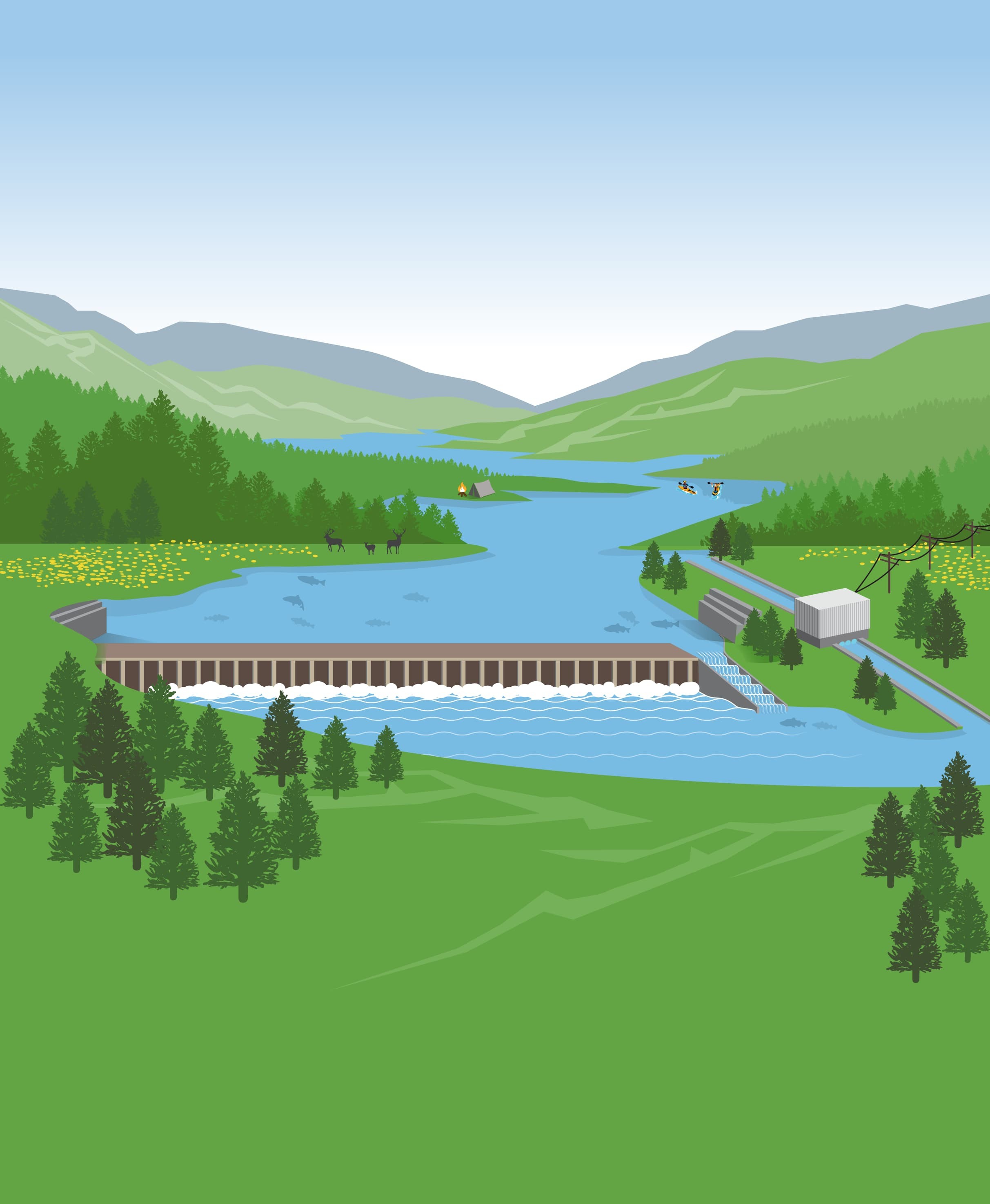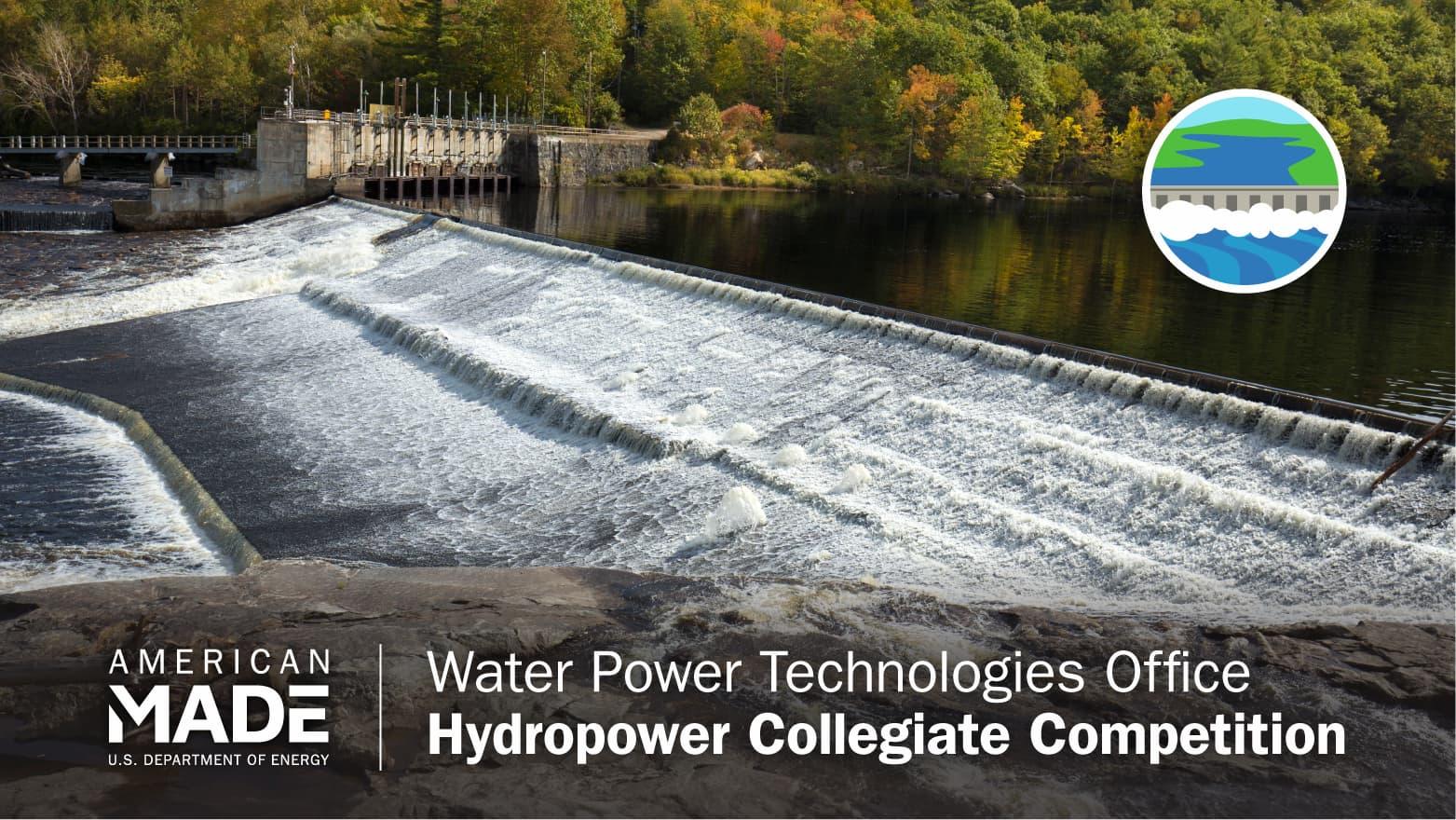Hydropower Collegiate Competition (HCC)

Hydropower—energy created from fresh, moving water—is the world's oldest form of renewable energy. Throughout human history, we have used the power of rivers and streams to produce flour, lumber, paper, textiles, and metal products. Today, we still use water to generate clean, affordable electricity.
Hydropower already plays an important role in our power system—it provides 37% of total U.S. renewable electricity generation and 93% of grid-scale energy storage—and yet it still has untapped potential and significant opportunity for growth. However, this growth can only be realized with further innovation and a new generation of skilled workers to support this clean energy transition.
Prize Overview
To pave the way for the next generation of workers to start their careers in the hydropower and renewable energy industries, the U.S. Department of Energy's Water Power Technologies Office and the National Renewable Energy Laboratory, in partnership with the Hydropower Foundation established the Hydropower Collegiate Competition (HCC) in 2022. The HCC calls on interdisciplinary teams of undergraduate and graduate students from a variety of academic programs to offer unique solutions to complex hydropower challenges.
By participating in the HCC, students gain industry experience, valuable exposure to hydropower career pathways, and greater knowledge of hydropower’s potential to contribute to a clean energy future.

Who Can Participate
Teams must meet the following criteria to be eligible:
- Teams may consist of a combination of postsecondary, undergraduate, and graduate students, but must be at least 50% postsecondary and/or undergraduates.
- Both U.S. and non-U.S. institutions are welcome to apply and participate.
- Non-U.S. institutions are not eligible to receive cash prize funding.
- In a team with students from U.S. and non-U.S. institutions, the lead institution must be a U.S. academic institution accredited by the U.S. Department of Education to be eligible for cash prize funding.
Teams should strive to include students from a range of academic disciplines, including but not limited to:
- Engineering
- Business
- Marketing
- Communications
- Environmental and Public Policy
- Social Sciences
How to Get Involved
Click 'Follow the Competition' above to stay up to date on competition status, application openings, and recent news.
Competition Structure
The HCC invites selected teams to develop a concept to solve leading hydropower challenges. Over 10-12 months, teams develop materials for several challenges, outlined below. Teams present their work at the HCC final event, typically held at an industry event.
HCC teams compete in the following challenges:
- The Siting Challenge, where teams perform a site selection process and then develop a feasibility assessment for the selected site.
- The Design Challenge, where teams either create a conceptual design of their selected site or complete a final design for a component or system related to the development of their selected site.
- The Community Connections Challenge, where teams conduct outreach with the hydropower industry and a community of their choosing.
- The optional Build and Test Challenge, where teams build and test a scaled prototype of a component of their hydropower site or system.
- The optional Cyber in Hydro Challenge, where teams will respond to a case study challenge that involves cybersecurity issues.

Ready to Join the Hydropower Current?
Are you an undergraduate or graduate student interested in hydropower and renewable energy? We're looking for multidisciplinary teams of college students to solve leading hydropower challenges and build skills and industry connections that will prepare them for careers in clean energy.
Follow this Competition